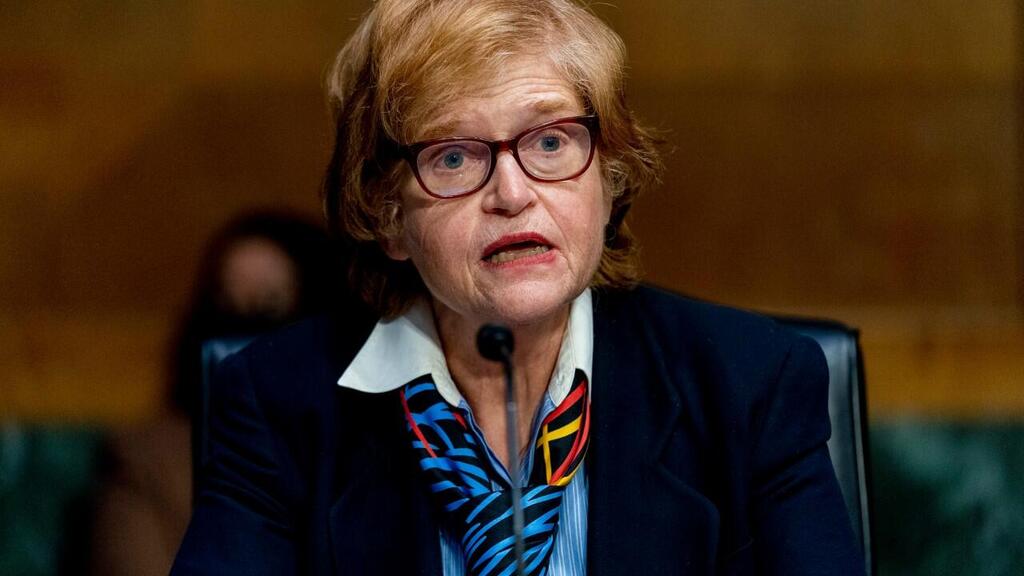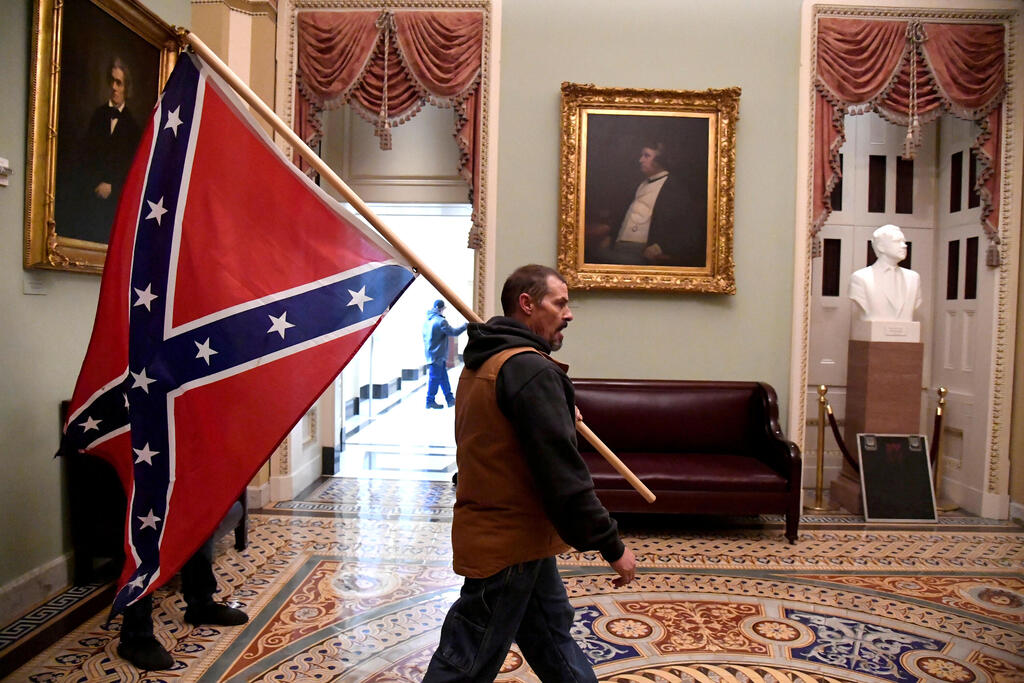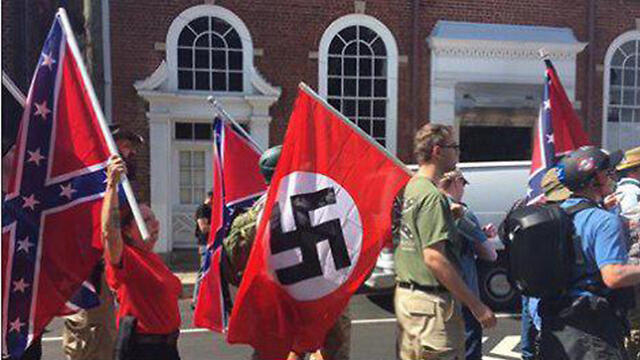Antisemitism is not only a threat to Jews in America, it's also a threat to democracy, Deborah Lipstadt, U.S. Special Envoy for monitoring and combatting antisemitism, told MSNBC in an interview on Thursday morning.
More stories:
Lipstadt says that Americans have always believed that antisemitism is an "overseas problem." This is no longer the case, she says: "It's here at home and it's overseas." She says that when she discusses the problem of antisemitism with her counterparts around the world, "I can't say we figured it out. It's very debilitating."
3 View gallery


Deborah E. Lipstadt, U.S. Special Envoy for monitoring and combatting antisemitism
(Photo: AP)
The Anti-Defamation League found that the number of antisemitic incidents in the U.S. increased by more than 35% in the past year.
The U.S. antisemitism envoy points out that antisemitism "is not just a threat to the welfare of Jews."
"First of all, it starts with Jews and it never ends with Jews. Equally important, is that it’s a threat to democracy. Because the person who is an antisemite believes in the conspiracy theory. Now we've heard so much about conspiracy theories in recent years," she says.
"I used to have to explain what they were but now people know. And the conspiracy theory of course is that the Jews control the banks, the media, the judiciary the finances, everything. So, if you believe that one group controls everything you believe that democracy is a sham, that democracy is kaput."
Lipstadt recently was named one of Time Magazine's 100 most influential people of 2023 for her work "fearlessly calling on the international community to ensure that Jews everywhere can live safely and practice their faith freely."
"He has followers, and not only does he have followers, but he has followers among young people. In the middle schools and the high schools the kids are getting, 'oh you jew, oh Hitler didn’t kill them.' And the kid who is saying it may not even know what they mean by it but it starts and then it escalates," she explains.
Lipstadt says that the Biden administration is working to come up with a national plan to address rising antisemitism. But she says that no plan can be successful unless the public is willing to call out antisemitism when they hear it.
"When you hear someone making a crack like 'oh those Jews,' you have to say that is not acceptable. Sometimes people do that out of innocence, they don't realize what they are saying, so you have to call them on it. Some people do that out of maliciousness, and they have got to be told that this is not acceptable here," she says.
3 View gallery


A Trump supporter carries a Confederate flag in the U.S. Capitol after a mob stormed the building, Jan. 6, 2021
(Photo: Reuters)
Parents also have to tell their children that such comments are inappropriate. "It's got to start in the kitchen," she says.
Lipstadt says she is often asked if antisemitism now is the same as in the 1930s. She answers "definitely no." That's because in the 1930s it was governments that were expelling or persecuting Jews, she explains.
But this does not mean that it is not a serious problem.
"Now is a time to take this very seriously. But when a president of the United States, when a secretary of state says to me fight this, when a vice president says to me fight this when members of Congress from both sides of the aisle approach me when I am in the Capitol and say 'thank you for what you are doing how can we support you?' It's an encouraging sign. Is it a solution? Will it solve the problem? No. But we must contain it," she says.
It is not all bad, however. "You've got to look for the good, you've got to look for the light in the dark. There is a lot of darkness but there is also light," she concludes.


